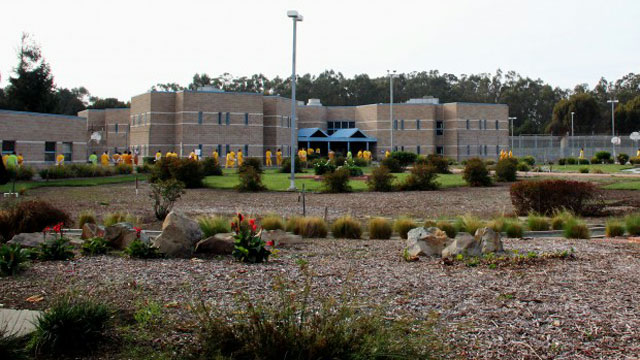 This has made local jails less safe and more chaotic, according to the Sheriff’s office. In the West County facility 23 assaults on inmates and staff have been reported in the past two months alone. “I worked [there] when it first opened and I can’t ever remember a staff member being assaulted,” Contra Costa Undersheriff Mike Casten told the board meeting.
This has made local jails less safe and more chaotic, according to the Sheriff’s office. In the West County facility 23 assaults on inmates and staff have been reported in the past two months alone. “I worked [there] when it first opened and I can’t ever remember a staff member being assaulted,” Contra Costa Undersheriff Mike Casten told the board meeting.
In June, the Sheriff tried to obtain AB 109 money to increase the holding capacity in the West County jail and to improve safety, but the plan was shelved due to widespread community resistance.
The Sheriff is now seeking an allotment of SB 1022 funds — money that the state has set aside for jail construction and expansion — to deal with the operational and safety concerns stemming from realignment. “It’s the greatest opportunity we’ve seen in our law enforcement careers,” Casten said.
If Contra Costa County receives the $80 million grant, the Sheriff wants to increase holding capacity at the West County jail. The office also plans to provide a suite of educational and vocational services at the facility, although it already offers an assortment of re-entry programs to inmates.
Sheriff’s officials are adamant that the new facility will not lead to a spike in the number of inmates housed in the county. Instead, the project will allow some of the more serious criminals from the Martinez jail — which only has a handful of educational and religious programs — to be transferred to West County so that they can access services. It will “allow high risk inmates with serious charges the opportunity to have the same opportunities as the lower risk, less serious offenders,” Casten stated in an email.
However, some activists are wary about expanding the county jail, and are pushing for more alternatives to incarceration. Many suggest reducing the number of inmates in pre-trial detention. About 85 percent of people held in Contra Costa County jails were awaiting trial in 2012, according to the ACLU.
“If you take those people and give them bail reduction or electronic monitoring, that would clear so many bed spaces that [the Sheriff] wouldn’t even know why he was asking for that money,” said Andres Abarra, a member of the criminal justice research group Safe Return.
While roughly 90 percent of the $80 million expansion project would be covered by the state, Contra Costa County residents would have to foot the bill for increased staffing and upkeep at the facility, Abarra said.
Sheriff’s officials say that maintenance and staffing costs stemming from with the expansion would be covered by state funds — including some AB 109 money. Contra Costa County leads the state in split-sentences — where a portion of the term is served in jail and another portion on probation — and has a “robust” policy for pursuing alternatives to incarceration, such as pre-trial release and ankle monitoring, Casten said.
Adam Kruggel, the executive director of Contra Costa Interfaith Supporting Community Organization, cautiously supports the Sheriff’s plan. “He should be applauded for his efforts to increase programming,” Kruggel said. “But it’s still not a good use of tax-payer dollars to build more beds when there are so many other alternatives.”
The Sheriff’s application is due October 24.
